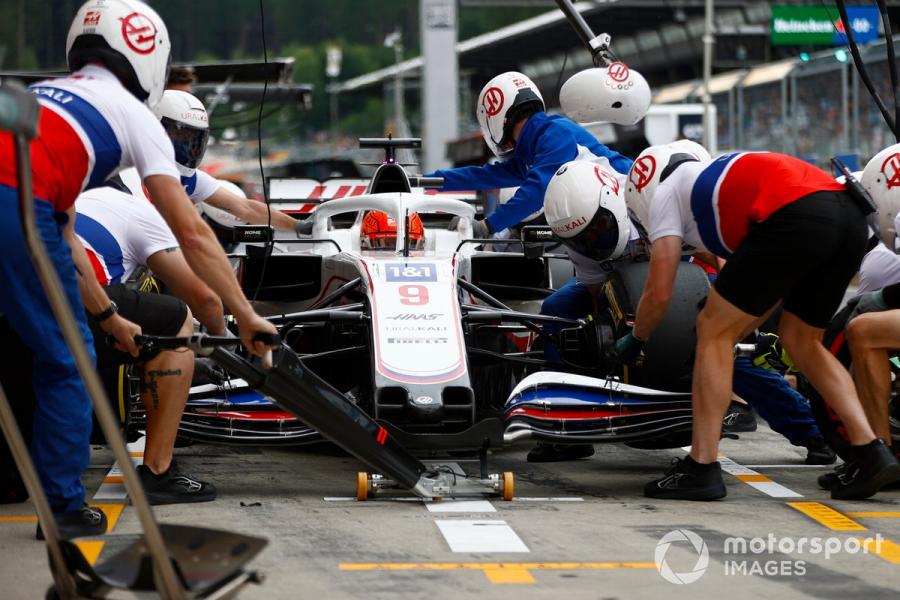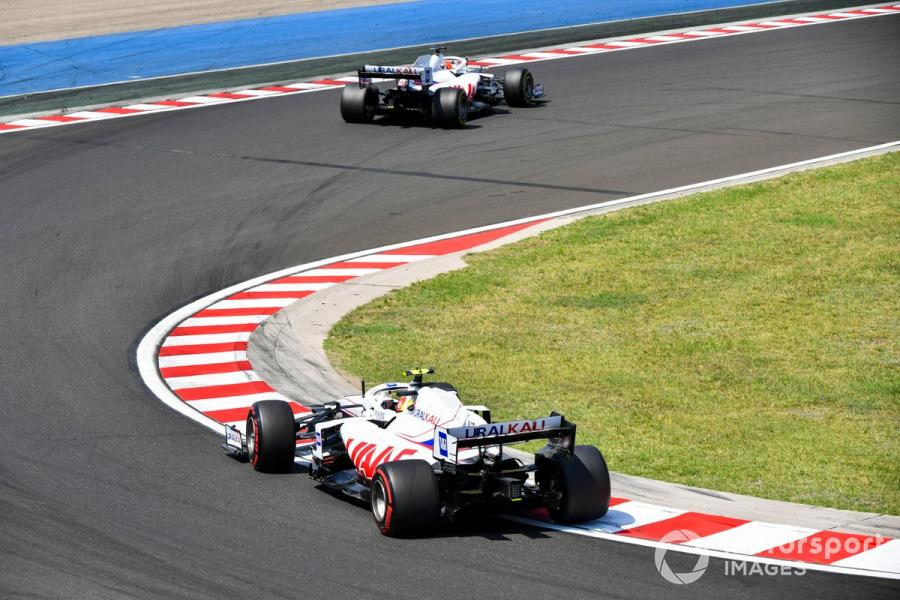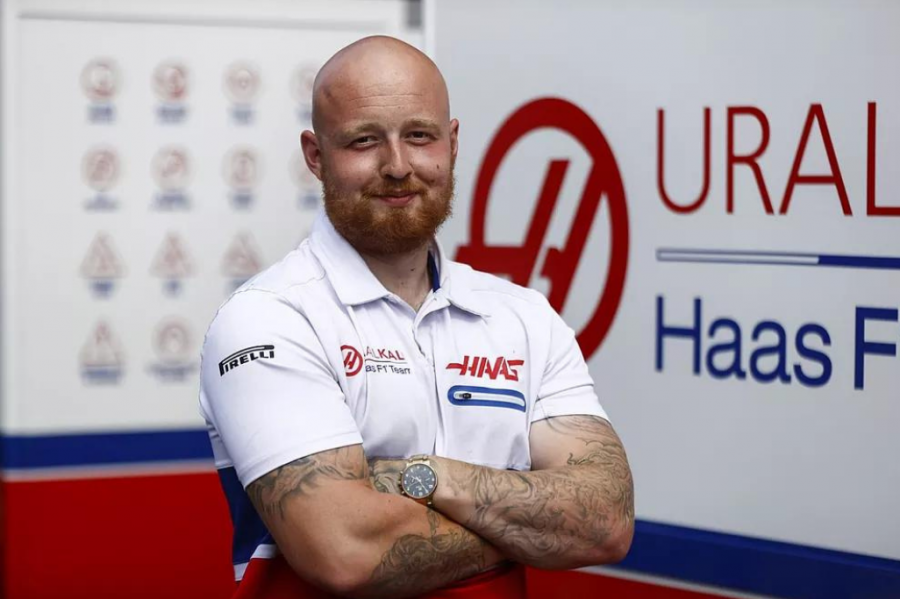From attaching stickers to the cars to driving forklifts and moving freight, a Garage Technician’s day is never dull. It’s also one of the more hands-on roles in a Formula 1 team, allowing someone to get up close and personal with the cars and tools used in running a Formula 1 car. To find out what it takes to get into this role we spoke to Ryan Cottee – a Garage Technician for Haas F1 Team – about his job.
What is your role?
I am a Garage Technician, so my main roles are that I control the consumables case at the track and I control the sea freight and air freight coming in and out of track, being loaded and unloaded. I also put all the stickers onto the cars and garage. My secondary main role is front of house. There are two of us who control front of house, making sure it is up to Formula 1 standards at all times.
How do you become a Garage Technician?
When I first moved to Haas F1 Team, I was an IT technician. I was in the role for three years but wanted a change in pace – I wanted to be up and about more and get a bit more involved.
What qualifications do you need?
I think you need all your standard GCSE’s. A HGV licence is always a bonus. Nowadays we don’t drive our own trucks to events, we use external resource but during the off-season there are a lot of times where we would drive those vehicles. A lot of the training that you will need to acquire, you will also get on the job. You may need to drive a forklift for example so they will give you the training to get that licence. There’s a lot I have been taught just by doing the job.

What should you study in school?
Maths is always a useful subject as you’re using numbers, for example when you’re working with fuel, you’ll be doing the figures. A motorsport degree may help depending on the role you’re looking at.
What other skills are useful?
Being very hands-on. If you’re quite a hands-on person and quite mechanically minded, you can be useful everywhere. The Garage Technician role is very diverse, so one minute you could be tidying the garage or polishing the cars, to running air lines and making sure they’re pressured up to 300 BAR. 10 minutes later you could be loading a truck, and another 10 minutes after that you could be driving a forklift, moving pallets around the paddock. You’ve got to be very hands-on and you must be eager and ready to work and be happy to do anything. The team relies on the Garage Technicians to do whatever is needed.
How can I get work experience?
The junior formula, Pro Cars, they would look to accept apprenticeships and work experience. Formula 1 is the elite – it’s the top of motorsport. From personal experience, my military background helped me when getting into motorsport. You’re doing similar things in the sense of your building up and bringing down and you’re busy all the time, plus it’s very physical. I would always suggest emailing a team and asking if you can do some work experience or maybe even just to come and visit to understand what is going on.

Do you get to go to races?
Yes - I go to every event.
What does a day at work look like for you?
From the beginning of the week to the end of the week is 100% different. We are the first to travel from the team – for European races that may be Monday and for flyaway race, Saturday or Sunday. We will usually go in at 08:00 from Monday - Sunday and build the garage, setting up the gantry system and unloading all six trucks. Later on in the week, your timings are based on the mechanics with the car build. Friday’s are the super long days and you work to the curfew. Once FP2 finishes, you’re still working around eight hours after that. Saturday is standard for us and you’re going with the running schedule. Race day is about making sure everything is ready for the race and you’ll do some pitstop practice as well. After the race, depending on where we are, we will start the pack-up. There are a lot of variables which dictate to how long that process takes.
What’s your role involving pitstops?
I am the rear left, wheel on. I started on rear right, wheel on and moved over to assist the team with a faster process. I’ve been doing this for two-and-a-half years now. Out of the entire event, it’s the best three seconds of the week. You’re relaxed, chilled and watching the race and then you get your standby call and your heart rate starts to go up a little bit. You then head out and start prepping all your wheels and you’re buzzing. You’re watching the car come in and the anxiety is high for the first couple that you do but then after that it’s purely adrenaline. Your heartrate is pounding through the roof and all you want to do is get that wheel on and send that car as fast as you can. When you’re racing other teams and your pitstop matters, it’s even better. When you have a great stop, it’s amazing.
Find the latest jobs with the Haas F1 Team, on the Motorsport Jobs website.
